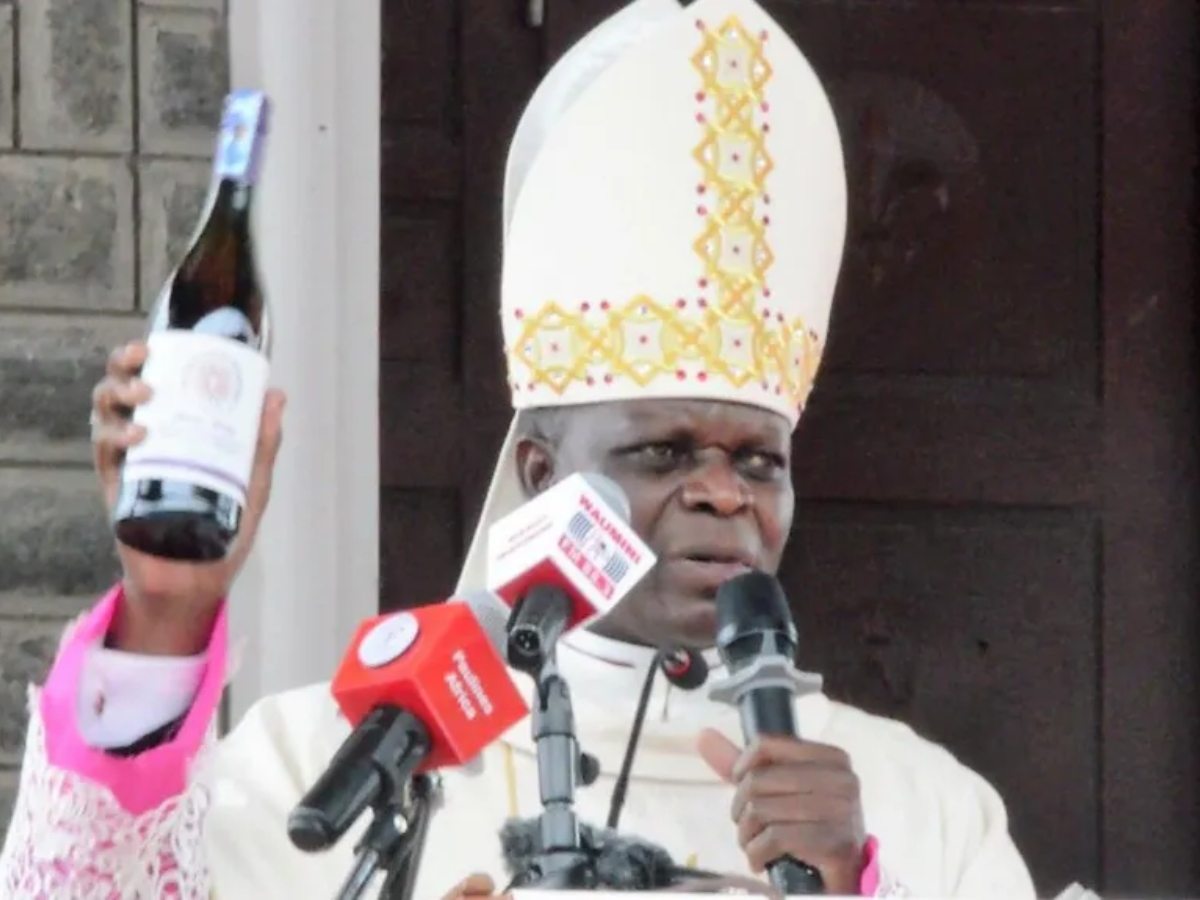The Kenyan Catholic Church has introduced a new brand of altar wine for Holy Mass because the previous one became too common for consumption in local bars.
The new sacramental drink is simply labelled Mass Wine and bears the coat of arms of the Kenya Conference of Catholic Bishops (KCCB) and an official signature to certify its authenticity.
“The newly approved wine is not for sale at any business outlet, but is imported and owned by the KCCB, and only distributed to the dioceses,” Archbishop of Nyeri Anthony Muheria said to the BBC.
READ ALSO: Madagascar’s president asks for one year to fix crisis or he will resign
The Catholic faithful have welcomed the move, believing the previous brand had lost its sanctity due to its widespread use outside the church.
At mass, wine is used to symbolise the blood of Jesus Christ and is normally drunk by the priest. On some occasions, the congregation consumes it as well.
According to Archbishop Muheria, the composition of the wine is regulated by the Catholic Church’s Canon Law.
“Vigilance on the quality and standards of the wine and hosts [bread used to symbolise the body of Christ] used in the Mass is given to the Catholic bishops of the country. This is reviewed from time to time,” the archbishop added.
The old wine was distributed by a local alcohol manufacturer, and was widely sold in liquor shops, hotels, bars and supermarkets.
“It has become common that unfortunately, the former wine is readily available in secular outlets and bars,” Archbishop Muheria told the BBC.
Following the exploration of multiple wine options, the Catholic Church in Kenya chose a South African vintage.
The new wine was officially introduced for the first time to thousands of worshipers during this year’s National Prayer Day at the Subukia National Marian Shrine in Kenya’s Nakuru area on Saturday.
“This is the only wine that will be used in Mass celebrations across the country, going forward,” said Archbishop Maurice Muhatia Makumba, the KCCB chairman, as he held a bottle of the new sacramental wine.
He advised all Catholic churches in the country to desist from the use of the old wine and urged priests to get used to the new distribution guidelines and authorized outlets.
“The newly approved wine is not for sale at any business outlet,” said Archbishop Muheria, adding that the new drink was imported and owned by the KCCB.
“This assures purity from source.” The label on the new wine reads: “The fruit of the vine and the work of human hands will become our cup of joy” – a reflection of the wine’s sacred purpose.
Widely known as divai in the Swahili language, altar wine is consumed differently across dioceses, depending on the liturgical season and the level of church activity.
Some members of the Catholic community welcomed the introduction of the new wine, revealing that the old was being sold casually in shops like any ordinary drink, and that played down its sacred significance.
“It is a valid step toward preserving the sacredness of the Eucharist and ensuring that only properly prepared wine is used for Mass,” one Catholic told BBC.
According to government statistics, many of Kenya’s Christians are Catholic – about 10 million people, or 20% of the population.










